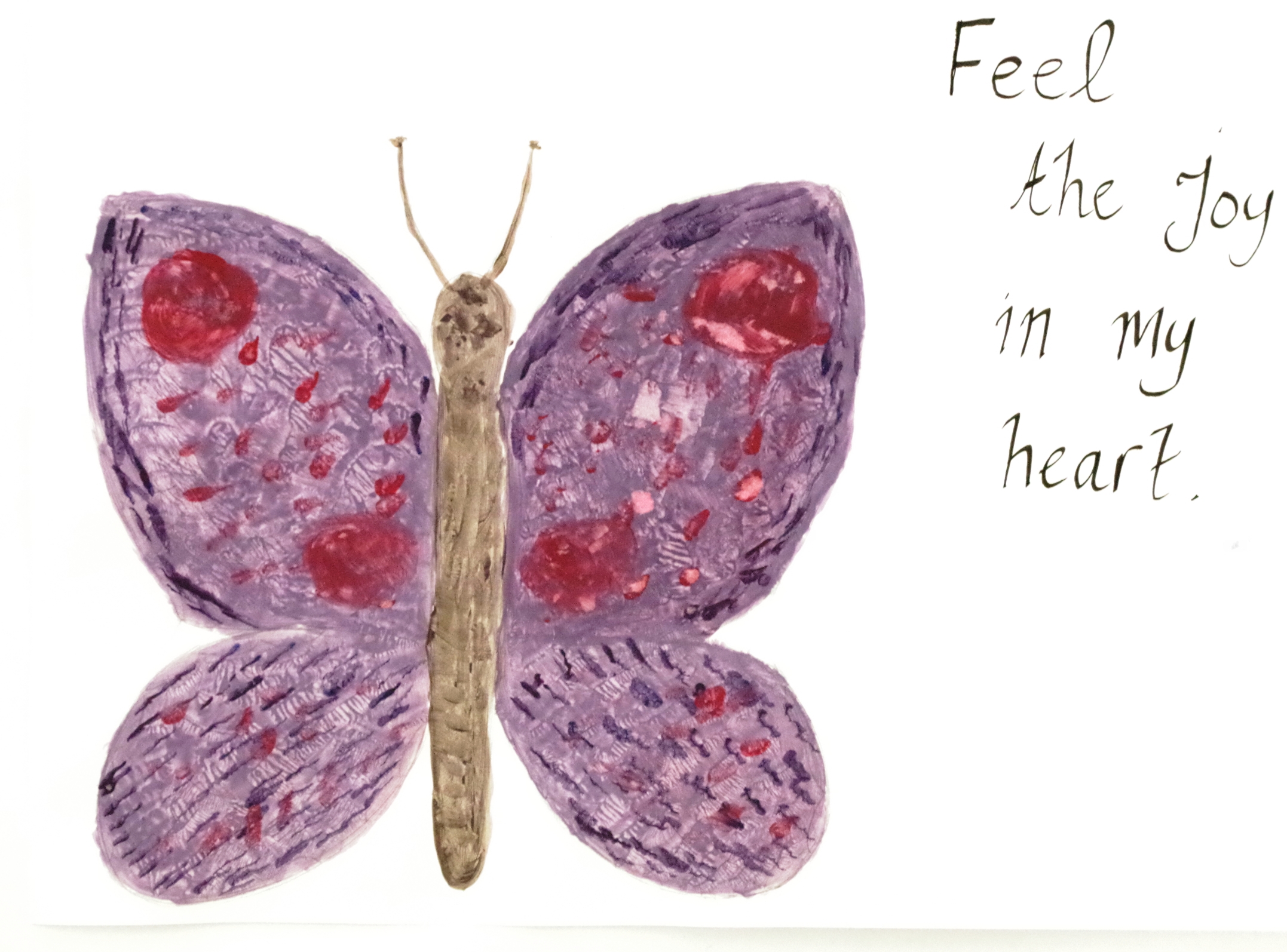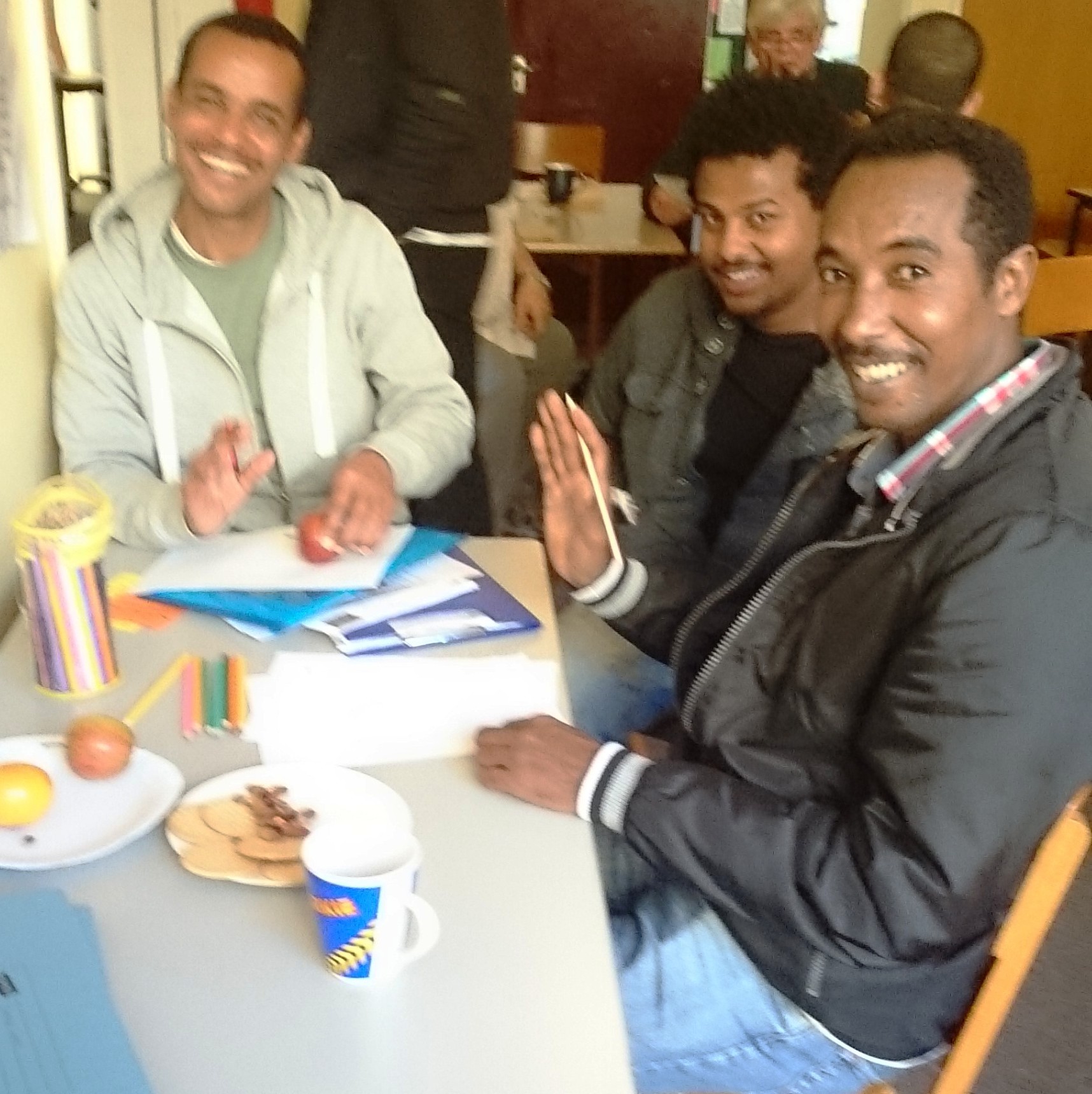Throughout 2014 as Creative Partners with Wakefield Council, Sarah Cobham and John Irving Clarke presented creative arts classes to the women of New Hall Prison and Asylum Seekers at the Quaker Meeting House in Wakefield. Using the liberating power of art, poetry and drama they were Giving the Voiceless a Voice.
Following the creative arts classes a small booklet was produced and an e-version is available by clicking here.
Here are some extracts from the booklet.
«When we started our work with Creative Partners, John and I had the intention of exploring the power of written and artistic expression. With the women of New Hall Prison and the Asylum Seekers receiving support from the City of Sanctuary based at the Quaker House, Wakefield, we were going to give the Voiceless a Voice.
We knew that involvement in the creative arts has the power to enhance self-esteem, boost confidence and help mediate a passage through difficult times. Nowhere has that been more obvious than at the subsequent drama presentation given by the women prisoners or the drawing and writing sessions at the Quaker House which drew the involvement of the Asylum Seekers and volunteer helpers.
This book is a small record of what took place: the shared enjoyment, the sense of
achievement and the empowering awareness of the value of giving the voiceless a voice.»
Sarah Cobham
At New Hall Women’s prison we had to work quickly. Constraints of time meant that we were limited to three morning visits over the course of a week during July.
We knew we would encounter hesitancy and some suspicion. We also knew that the prospect of working with writers might be intimidating for the women; particularly if they lacked confidence in their literacy skills.
This proved to be the case but we were able to work with some real positives. The library in which we were situated is an ideal working environment, surrounded by books of course, but with an evident ethos of purposeful support. Here we could launch the strategies which we had honed over more years in the classroom than we cared to count: drama games and story swapping to build self-esteem and a group identity. And then the business of words on the page, complementary art work and public presentation.
And it worked. By the final morning, the women successfully battled against their nerves and made a drama presentation to invited guests. Those present were moved by the performance and the palpable sense of achievement. For our part? We felt privileged to have had the opportunity to take part in this whole event.
On Wednesday mornings throughout 2013 and 2014, we began attending the Welcome Cafe drop-in sessions for Asylum Seekers at the Quaker Meeting House. Initially, we wanted to become familiar faces and build up a sense of trust and it was only when this was achieved that we started turning up with a bag full of art materials. Butterflies, trees, fruit and, most successfully of all, buns became our starting points for artistic expression. And in an environment where social, legal and health support was offered, we provided the opportunity to escape for a while into the therapeutic world of drawing and illustration. An opportunity which was seized by adults, children, Asylum Seekers and volunteers alike.
I ask you your story
and you tell me of
the proud symmetry of butterflies;
their delicate beauty.
I ask you your story
and you speak of
the glorious pass
of autumn leaves.
I ask you your story
and you touch upon
the sun rising each morning
and the Spanish: sonrisa.
John Irving Clarke
John Clarke has appeared several times in Margutte:
Poets of the World: John I. Clarke, Great Britain
I Figli di Mondovì
An Interview with John Irving Clarke
Each translation is a new creation
Who the Hell is Ricky Bell?
First Snow
An Honourable Man
Here is Sarah Cobham’s poetry






